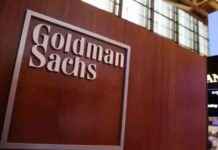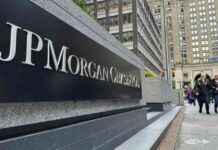In a recent surge of corporate travel trends, hotels are revolutionizing their revenue strategies through loyalty programs and dynamic pricing to cater to the evolving needs of the business world. With a significant increase in premium room rates averaging over 8% annually, hotel chains like Hilton, Marriott, and Hyatt are adapting to meet the demands of corporate clients while enhancing customer engagement and loyalty.
Dynamic Pricing and Corporate Contracts: A New Revenue Model
The corporate travel market in India is on the brink of remarkable growth, projected to reach a staggering $20.8 billion by FY30. Against this backdrop, major hotel chains have begun a strategic shift from traditional fixed-rate corporate contracts to dynamic pricing models that offer substantial discounts ranging from 15-20% off prevailing room rates. This transition has not only optimized revenue streams for hotels but has also provided a more flexible and cost-effective solution for multinational corporations managing large procurement contracts.
This shift in corporate contracting has been instrumental in driving revenue growth for industry giants like Hilton, Marriott, and Hyatt. According to Manish Tolani, Hilton’s vice president & commercial director, South Asia, Hilton’s success in capturing the corporate market is a result of a comprehensive commercial strategy that combines brand expansion, dynamic pricing, and robust customer engagement. This holistic approach has led to a remarkable 15-17% growth in revenue per available room (RevPar) for Hilton in FY 2024, primarily fueled by the corporate and MICE segments.
The Importance of Loyalty Programs in Corporate Partnerships
Marriott’s Bonvoy loyalty program has emerged as a key player in complementing the shift towards dynamic pricing in corporate contracts. Monisha Dewan, Marriott International’s vice president (sales & distribution), South Asia, emphasizes the value of loyalty programs in incentivizing corporate partnerships by offering enhanced reward points for eligible bookings. This integrated approach not only strengthens customer loyalty but also adds an extra layer of benefits for corporate clients, encouraging long-term relationships and repeat business.
Traditionally, fixed-rate corporate contracts often led to challenges during high-demand scenarios, where hotels faced yield dilution due to agreed-upon rates. With the adoption of dynamic pricing, corporates now have the flexibility to secure accommodations at discounted rates that align with their budgets and travel schedules. This shift not only benefits corporate clients but also allows hotels to optimize revenue streams and occupancy rates more effectively.
In addition to pricing strategies, the corporate travel industry is witnessing a growing emphasis on sustainability practices in event planning and corporate engagements. Marriott’s Dewan highlights the importance of eco-friendly initiatives, such as sustainable catering, waste management practices, and the use of local products in corporate events. This trend reflects a broader shift towards socially responsible business practices and aligns with the evolving expectations of corporate clients in the modern hospitality landscape.
Looking ahead, the corporate travel market in India is poised for substantial growth, with Deloitte projecting a 10.1% annual increase, doubling the market size to $20.8 billion by FY 2030. Industry leaders like Hyatt have already embraced this momentum, recording a remarkable 16% growth in total revenue from the corporate, MICE, and wedding segments across India and South West Asia in 2024. Kadambini Mittal, Regional Vice President, Commercial, India and South West Asia, Hyatt, emphasizes Hyatt’s commitment to premium business-focused properties, personalized event planning, and strategic expansion into high-growth markets to capture a distinct niche in the evolving corporate travel landscape.
In conclusion, the convergence of dynamic pricing, loyalty programs, and sustainability practices is reshaping the corporate travel sector, driving revenue growth for hotels, enhancing customer engagement, and fostering long-term partnerships with corporate clients. As the industry continues to evolve, these innovative strategies will play a pivotal role in maximizing corporate revenue and delivering exceptional value to stakeholders across the hospitality ecosystem.























